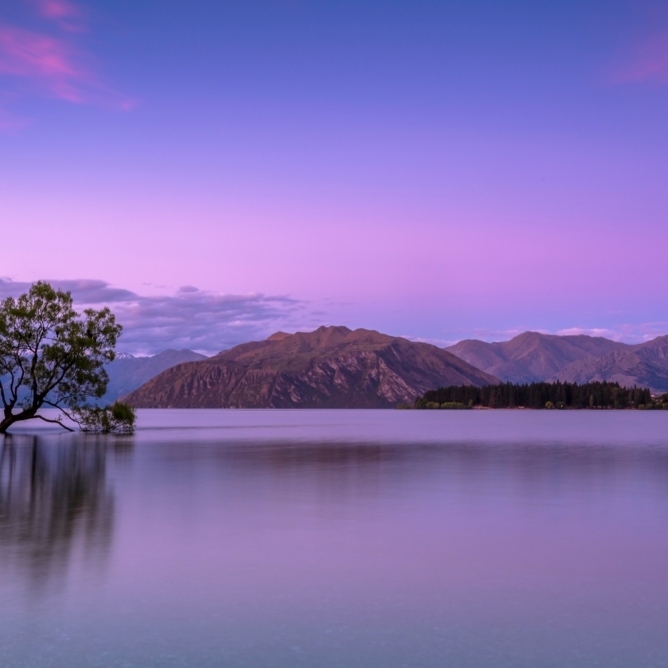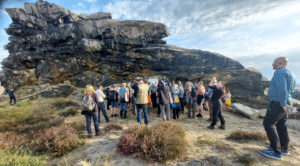
Palaeoclimate (PALCOM)
Palaeoclimate (PALCOM)
The INQUA Palaeoclimate Commission (PALCOM) supports a growing community of scientists and research groups focused on advancing our understanding of Quaternary climates. We emphasize the development of novel reconstructions and dating techniques to gain deeper insights into past climate drivers and variability, including abrupt events and long-term trends. PALCOM provides a platform for researchers to share knowledge, collaborate on innovative projects, and contribute to a more comprehensive understanding of Earth’s climate history.
PALCOM actively promotes international collaborative research through INQUA-supported projects. We prioritize greater participation and representation of researchers from the Global South, recognizing the value of diverse perspectives in addressing global climate challenges. By facilitating these collaborations, PALCOM aims to create a more inclusive and globally representative paleoclimate community.
PALCOM is dedicated to supporting early-career researchers and research groups from less-developed countries, ensuring that diverse voices contribute to shaping the future of paleoclimate science. We believe that fostering the next generation of paleoclimate scientists is vital for addressing the complex climate challenges facing our planet.
Current projects under the PALCOM umbrella include: WiSH – Warm Intervals in the Southern Hemisphere; INTIMATE – INTegrating Ice core, Marine and TErrestrial records for advanced palaeoclimate reconstruction; TRAC-XSA – Training Researchers in Core Analysis with Scanner XRF for South America; and S4 – Summer School on Speleothem Science. For the remaining inter-congress period ahead of the 2027 INQUA congress in India, the commission will maintain effective communication with its membership base and organize meetings with project managers and the congress organizing committee.
Projects
PALCOM

PALCOM President
Ignacio A. Jara, Universidad de Tarapacá, Chile
I am a paleoclimatologist with expertise in late Quaternary hydroclimate reconstruction in the South American Andes. My research focuses on understanding past climate drivers and mechanisms, for which I employ sedimentological and biological proxies from sedimentary archives, combined with global and regional modeling simulations.
Vice President
Marta Marchegiano, University of Granada, Spain
I am a tenure-track researcher at the University of Granada in the Department of Stratigraphy and Paleontology. My work focuses on paleoclimatic and paleoenvironmental reconstructions of marine and lacustrine environments, applying a multidisciplinary approach that integrates paleontology, sedimentology, stratigraphy, and geochemistry. In particular, I specialize in the application of the clumped isotope technique to ostracod shells, providing direct insights into past continental climate changes at a seasonal scale.
Vice President
Melissa Berke, University of Notre Dame, USA
I am an Associate Professor at the University of Notre Dame (USA). I am an organic geochemist and use sedimentary lipids and compound specific isotopes from lakes and oceans to reconstruct past climate and environmental changes. I enjoy doing field work at sites and with collaborators around the world, working in the lab (when I get the chance!), and mentoring students and early career scientists. In my free time, I love to read, listen to live music, and catch up with friends.
Secretary
Shivangi Tiwari, UC Louvain, Belgium
I am a paleoclimate scientist at the Université catholique de Louvain (UCLouvain), studying the Atlantic Meridional Overturning Circulation of the last 2 millennia. My previous work was focused on the Remote Impacts of the mid-Holocene Green Sahara, investigating teleconnections between northern Africa and various parts of the world. I am interested in studying North Atlantic and tropical ocean variability of the Holocene through tools like data assimilation, paleoclimate modelling and proxy-model comparisons.
ECR Officer
Sudhir Bhadra, Centre for Earth Sciences, Indian Institute of Science, Bengaluru, India
I am a paleoclimatologist and paleoceanographer whose research focuses on reconstructing past oceanographic and climatic changes using geochemical and micropaleontological proxies.
ECR Officer
Syed Azharuddin, Institute of Oceanography, National Taiwan University, Taiwan
I am currently a postdoctoral researcher at the Institute of Oceanography, National Taiwan University. My research focuses on reconstructing climate and oceanographic changes from the Pliocene to the present using geochemical proxies in both terrestrial and marine archives. My personal Webpage can be accessed here: https://climatesyed.weebly.com/PALCOM Advisory Board Members:
- Ayako Abe-Ouchi, The University of Tokyo
- Brian Chase, Centre national de la recherche scientifique (CNRS)
- Laurie Menviel, University of New South Wales (UNSW)
- Kenji Kawamura, The National Institute of Polar Research (NIPR)
- Kira Rehfeld, University of Tübingen
- Thomas Johnson, University of Massachusetts Amherst
- Fanny Lhardy, École Normale Supérieure de Lyon (ENS Lyon)
PALCOM Supported session INQUA Congress 2027
PALCOM-supported sessions
INQUA PALCOM interactive bulletin of scientific sessions for the INQUA Congress 2027

Latest developments
View moreLatest developments International Summer School 2026 – Climate change in coastal areas: hot topics, future projections, impacts
International Summer School 2026 – Climate change in coastal areas: hot topics, future projections, impactsInternational Summer School 2026 – Climate change in coastal areas: hot topics, future projections, impacts 3-6 June 2026, Venice (Italy)
 Loess Fest 2026
Loess Fest 2026Echoes of the past: Loess, climate and human interactions during the Pleistocene will take place between 7-11 September in Krapets, Bulgaria
 Podcast INQUA India 2027
Podcast INQUA India 2027Quaternary is the age when modern recognisable humans started inhabiting this planet. All over the world scientists are engaged in studying various aspects of human evolution. Once every 4 years scientists from all across the…
 PALCOM-supported sessions
PALCOM-supported sessionsINQUA PALCOM interactive bulletin of scientific sessions for the INQUA Congress 2027
 New QP Issue Out!
New QP Issue Out!QP Issue 39 December 2025 is now available online!
 INQUA 2025 Sir Nicholas Shackleton Medal
INQUA 2025 Sir Nicholas Shackleton MedalThe INQUA 2025 Sir Nicholas Shackleton Medal recipient is Prof. Dr. Nicole Khan from the University of Hong Kong (Hong Kong)
Scientific Journals

